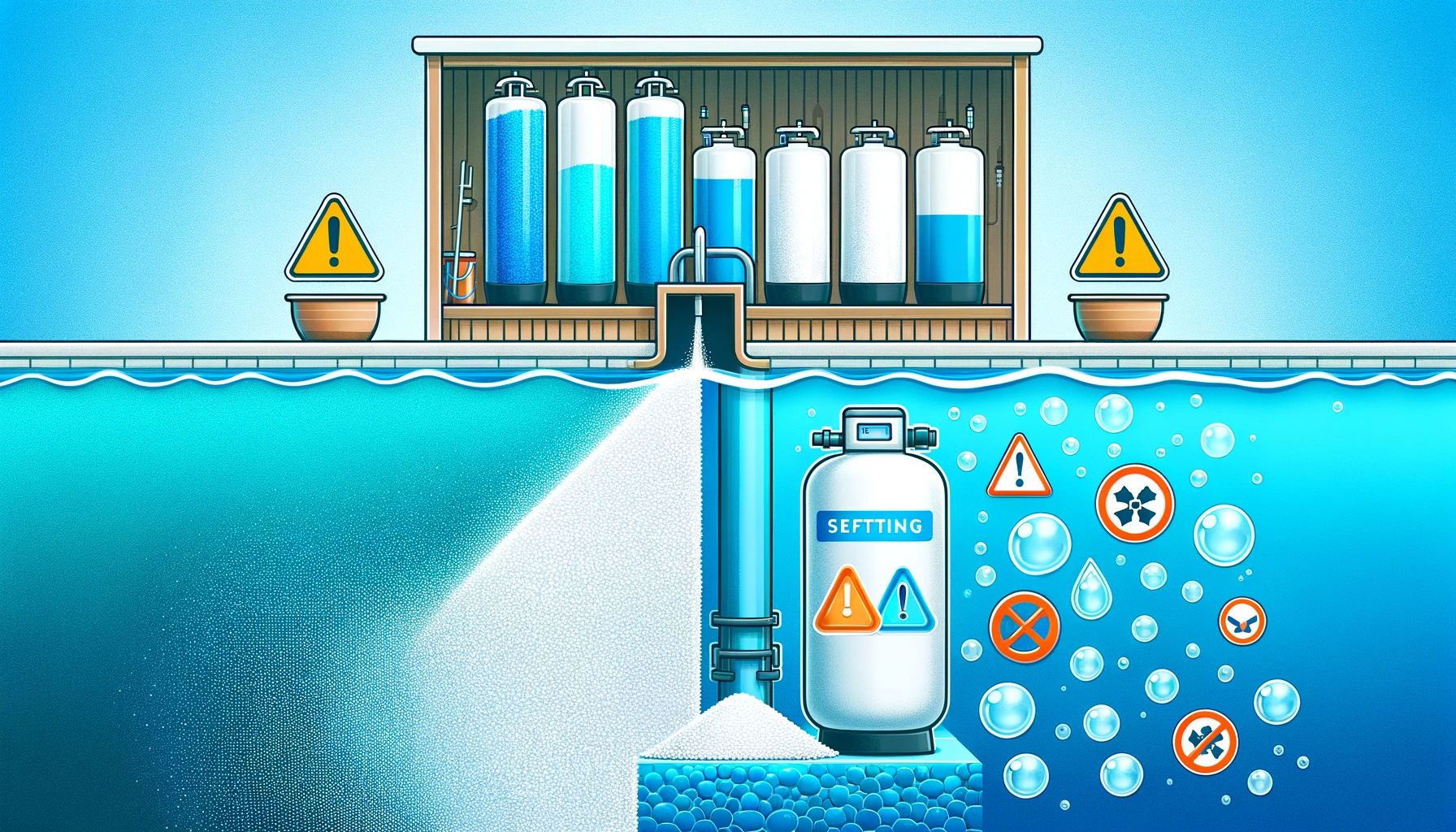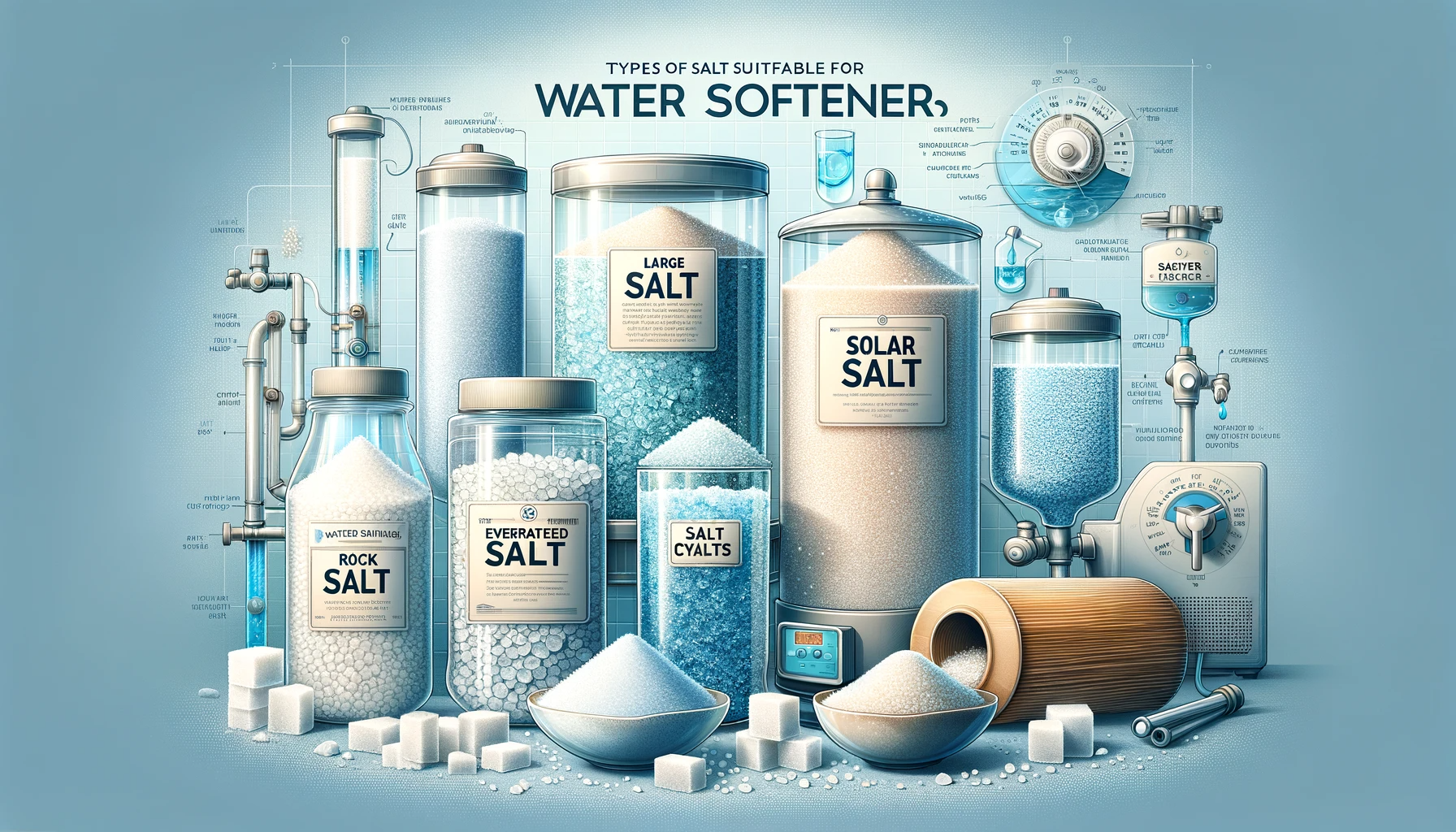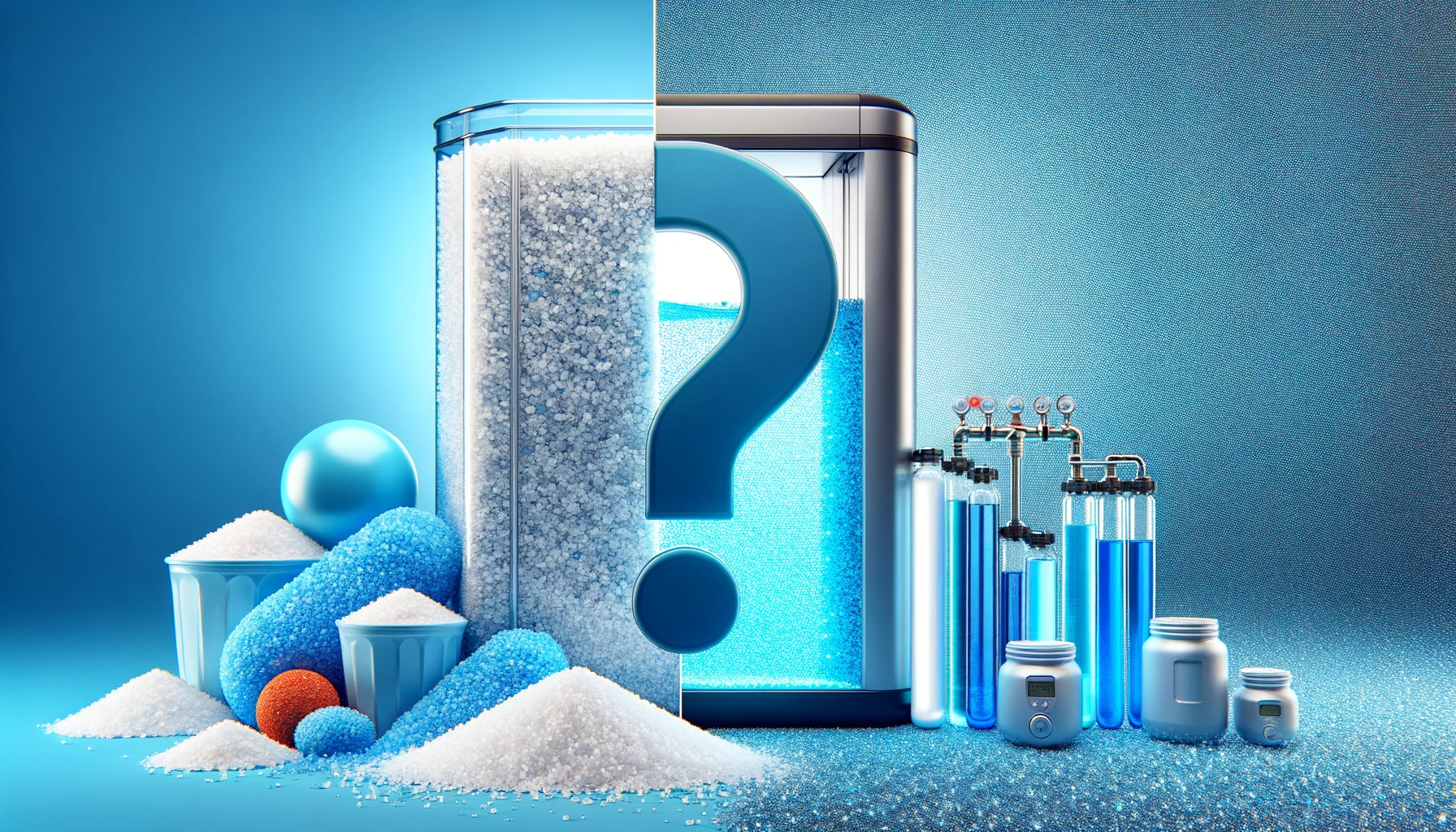Yes, you can use pool salt in a water softener. Pool salt typically consists of pure sodium chloride, suitable for water softening systems.
Understanding the interchangeable uses of different types of salt is essential for maintaining your household systems efficiently. Pool salt is often used in swimming pools to generate chlorine but, thanks to its high sodium chloride content, also serves effectively in water softeners.
Both applications require pure salt to function correctly, ensuring that the essential minerals for softening or chlorination processes are present. Homeowners looking to economize might find pool salt a cost-effective alternative to specialized water softener salts, as long as the salt is pure and free of additives that could harm the water softener system. Prioritizing the maintenance of water softeners is crucial as it directly impacts water quality and the longevity of household appliances. By confirming the purity and suitability of the salt, you can ensure a seamless transition without compromising performance.
Understanding The Basics
Salt plays a vital role in maintaining your pool and can also be an effective solution for water softening purposes. One might wonder if the same salt designated for pools can be equally functional in a water softener system. It’s crucial to realize that pool salt and water softener salt, while chemically similar, differ in purity and intended use.
To ensure optimal performance and avoid potential damage to your water softening system, it is essential to understand these distinctions. Pool salt often has higher levels of impurities, which can lead to residue buildup in your water softener. Consulting with experts or thoroughly researching the product specifications can save you from any unforeseen compromises to your water quality or equipment.
Selecting the appropriate salt type not only enhances efficiency but also prolongs the lifespan of your water softening system.

Can You Use Pool Salt In A Water Softener?
Understanding the differences between various types of salt can help ensure the effective and safe operation of your water softener. Pool salt and water softener salt may seem interchangeable due to their core chemical component, sodium chloride, but they differ in purity levels and additives.
Pool salt often has anti-caking agents and is designed for chlorine generators, while water softener salt is tailored to eliminate minerals from hard water. Utilizing pool salt in your softener might not yield the desired results and could potentially lead to maintenance problems.
Therefore, evaluating the compatibility and specifications of your water softening system is crucial before opting for an alternative like pool salt. Always consult your manufacturer’s recommendations to maintain the efficiency and longevity of your unit.
Effects Of Using Pool Salt In A Water Softener
Pool salt and water softener salt may seem interchangeable, but there are important distinctions to consider. Typically, pool salt is coarser and may contain additives acting against algae, which are not suitable for water softener systems. Water softeners demand a higher purity level to function efficiently and extend their lifespan.
Using pool salt could lead to clogging and other malfunctions due to potential impurities. Consequently, homeowners should weigh the pros and cons, understanding that short-term savings might lead to costlier repairs or reduced effectiveness of their water softening appliances. Essentially, the right type of salt ensures the longevity and performance of your water softener.

Types Of Salt Suitable For Water Softeners
Selecting the right type of salt for your water softener is crucial to its effectiveness and longevity. Pool salt and water softener salt may appear similar, but they’re processed differently to serve distinct purposes. Water softeners typically use three kinds of salt: rock, solar, and evaporated.
Each presents unique benefits, with evaporated salt being the purest form. In contrast, pool salt has larger crystals and is designed to disperse rapidly in a pool to maintain chlorine levels. Its purity level might not match that of salts specifically refined for water softening systems.
While some might consider pool salt as a substitute in a pinch, its inappropriate structural composition could lead to subpar softening results and might clog your system, potentially causing maintenance headaches down the line. Choosing a salt tailored for water softeners is a minor detail that significantly impacts the efficiency of your system.
Alternatives To Pool Salt For Water Softeners
Exploring alternatives to pool salt for water softener systems is essential for maintaining optimal performance and longevity of the equipment. It’s important to understand that pool salt and salt designed specifically for water softening systems vary in purity and composition.
Softener salt often contains higher purity levels and additives that help prevent buildup in your softening system. While it may be tempting to use a readily available bag of pool salt in a pinch, doing so could lead to clogs or decreased efficiency due to impurities.
Therefore, seeking out appropriate substitutes for your water softener is more than just a matter of convenience; it’s also about safeguarding your investment and ensuring the consistent quality of your home’s water supply.
Expert Opinions And Case Studies
Exploring the versatility of pool salt raises a curious question about its potential use in water softeners. Experts have delved into the intricacies of its composition, comparing it to the conventional salts typically used in softening systems. Pool salt, while chemically similar to softener salt, often contains additional anti-caking agents and has a different crystalline structure.
This subtle variation could lead to inconveniences and inefficiencies in some softening systems, as case studies suggest. Homeowners have reported varying degrees of success, documenting their experiences in detail. These real-life accounts provide invaluable insights, emphasizing the importance of consulting with a water treatment professional before making the switch to ensure compatibility and maintain the longevity of the water softening unit.

Adding Salt To Your Pool
To ensure your swimming pool remains a refreshing oasis, proper maintenance is essential, and this includes the salinity level of the water. Many pool owners find themselves pondering whether the salt specifically designed for pools can be interchanged with the salt used in water softeners.
It’s crucial to comprehend that while both types of salt serve to dissolve in water, there are fundamental differences in their purity and intended usage. Utilizing the incorrect type of salt might lead to inefficiencies or even damage to your pool’s delicate systems.
Therefore, it is advised to adhere to the manufacturer’s recommendations for salt types to prevent unnecessary wear and tear on your pool equipment. Always prioritize proper research and guidance before making a decision that could affect the longevity and enjoyment of your pool.
Frequently Asked Questions For Can You Use Pool Salt For Water Softener
Is Pool Salt Different From Water Softener Salt?
Yes, pool salt and water softener salt differ in purity levels; pool salt is more refined to dissolve quickly in pool systems.
Can Any Salt Be Used In A Water Softener?
No, only specific salts designed for water softeners, like evaporated or solar salt pellets, should be used to ensure efficiency and prevent damage to the unit.
What Are The Alternative Uses For Water Softener Salt?
Water softener salt can melt ice on driveways, act as a weed barrier, absorb oil spills, and maintain swimming pools. It’s also used in some homemade cleaning solutions.
Conclusion
Wrapping up, using pool salt in your water softener can work as a temporary fix but isn’t ideal long-term. For optimum performance and appliance longevity, invest in the correct type of salt designed for your system. Always prioritize tailored solutions for your water softening needs to ensure you’re getting the best results possible.


Leave a Reply